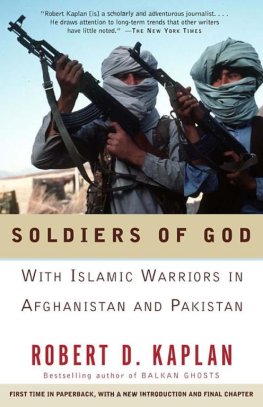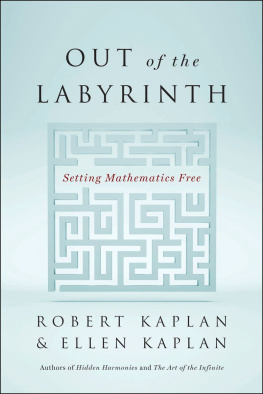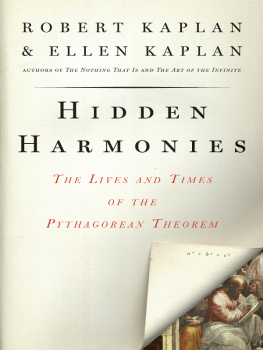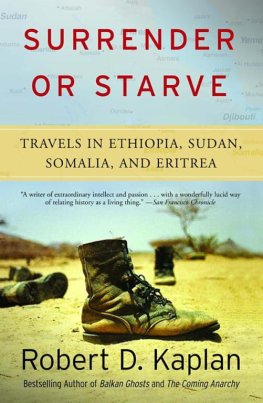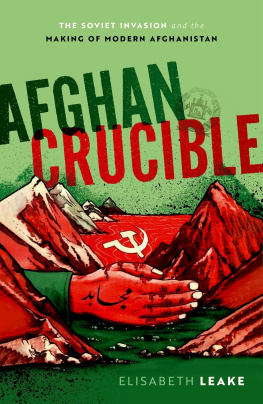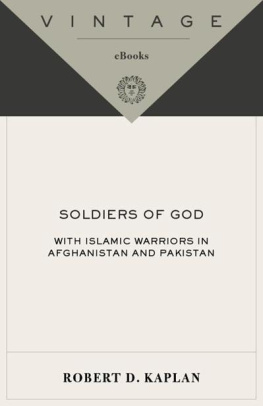Robert D. Kaplan
SHOULDERS of GOD
With Islamic Warriors in Afghanistan and Pakistan
For my mother
and
for my late father,
Philip A. Kaplan
I have seen much war in my lifetime and I hate it profoundly. But there are worse things than war; and all of them come with defeat.
Ernest Hemingway,
Men at War


Soldiers of God, which was first published in 1990 (with the subtitle With the Mujahidin in Afghanistan), provides the historical context for the emergence of the Taliban and Osama bin Ladens terrorist network. My new final chapter, The Lawless Frontier, which appeared as a long article in the September 2000 issue of The Atlantic Monthly, provides the follow-up. Both Soldiers of God and The Lawless Frontier also offer profiles of some of the prominent personalities in a post-Taliban Afghanistan.
I finished writing Soldiers of God at my home in Greece thirteen years ago, after several lengthy trips to Afghanistan and Pakistans Northwest Frontier province in the mid- and late-1980s. It was the last phase of the Cold War, and while no one could predict how suddenly and definitively it would end, there were some premonitions in Afghanistan. The Afghan mujahidin (Islamic holy warriors) were in many respects a bunch of ornery backwoodsmen, whose religious and tribal creed seemed to flow naturally from the austere living conditions of the high desert unlike the more abstract and ideological brand of Islam of the Taliban (Knowledge Seekers), who would emerge a few years later. The mujahidin in the 1980s were exacting a terrible price from the Soviet military occupiers of their country. I remember meeting captured Soviet soldiers, whom the mujahidin would make available to journalists: these Soviets were terrified and disillusioned youngsters, unsure about what they had been fighting for. Failure and an abject lack of pride registered in their eyes. It was a common assumption among the journalists who covered the mujahidin that the war in Afghanistan would ultimately have a profound impact upon Soviet society.
In 1989 the world media spotlight soon shifted from Afghanistan to Eastern Europe, where the Soviet Empire was cracking apart, helped by the trauma of the Soviet catastrophe in Afghanistan. Afghanistan was forgotten, and partly as a consequence has come back to haunt the West: a failed, bankrupt state in which terrorists with fat wallets set up shop. The primitive defiles of eastern Afghanistan lacking electricity and running water are where the successful plan to destroy the World Trade Center towers and a wing of the Pentagon on September 11, 2001, likely had its roots.
Soldiers of God is a tale of strong-willed individuals as well as of ethnic groups formed by history and geography. I was a younger, less mature writer when I wrote Soldiers of God. I was caught up in the struggle to liberate Afghanistan, and my lack of objectivity shows; nor was I as fair to some people, or as critical of others, as I should have been. Soldiers of God is not a primer for current or future policy in Afghanistan. But it may succeed in giving the reader a sense of the mood, the beauty, and the heady politics of Afghanistan and the Northwest Frontier during the last phase of the Cold War.
Afghanistan, in addition to everything else that has been said about it, is one of the most beautiful places that I have ever known: the woodsmoke, the mudbrick redoubts, the purifying heat and emptiness, the tribal costumes in a part of the world unadulterated by cheap Western polyesters.
Between the writing of Soldiers of God and The Lawless Frontier, much happened in Afghanistan that I do not cover in this volume. In those intervening years, Afghanistan dissolved into chaos. Though the mujahidin were successful in driving out the Soviets, they failed to consolidate their victory. The mujahidin suffered the classic weakness of many guerrilla movements: they could defend their homes and make life miserable for the invader, but they lacked the unity and organization required to do what has been the central role of government since time immemorial: monopolize the use of force to create order, so that individuals and groups have no need to fear each other, and can consequently get on with their lives and engage in commerce. The early 1990s, after Soldiers of God was finished, were characterized by the wars of the mujahidin, in which one group of guerrillas would bomb the capital of Kabul in order to uproot another group from the city. In those years, Afghans learned to hate the very people who had liberated them from their Soviet occupiers.
Of all the mujahidin groups, the most ruthless and destructive was Hizb-I-Islami (the Party of Islam), led by Gulbuddin Hekmatyar, a former student rabble rouser at Kabul University and one of the characters in Soldiers of God. In fact, Soldiers of God tells an early version of a story that other journalists have elaborated on over the years: how the Pakistani security agency, Inter-Services Intelligence, funded by the U.S. Central Intelligence Agency, favored Hekmatyar over more moderate mujahidin groups. The result was the rise of anarchy and extremism in Afghanistan, which provided a fertile petri dish for the growth of the Taliban. The Lawless Frontier provides the details of how the Taliban came into being in the mid-1990s.
Still, the criticisms of American policy during the period of the Soviet occupation of Afghanistan may lack some historical and philosophical context. The United States, in the 1980s, was doing what great powers have done throughout history, in order to survive as great powers: pursue its strategic interests. A state that neglects the projection of power has little chance of spreading its values. Moreover, foreign policy is about priorities: in the 1980s, the welfare of Afghanistan was secondary to the defeat of the Soviet Union, Americas adversary in a bipolar world. That is a brutal, tragic realization, but as someone who reported on Eastern Europe during the Cold War, it is one that I accept. And the fact that towers above all others is that arming the mujahidin however imperfectly it was done played a significant role in the eventual collapse of the Soviet Union and the liberation of Eastern Europe. The imperfections in the Reagan administrations policy, of course, helped lead to a new challenge: that of terrorism. Just as the imperfections in our military strategy against Nazi Germany in the latter part of World War II helped lead to the domination of Eastern Europe by the Soviet Union for forty-four years, necessitating the Cold War.
The United States armed Hekmatyars radicals because that is what the Pakistanis wanted us to do. The U.S. demurred to the Pakistanis for several, somewhat understandable reasons. The CIA had a long-standing and fruitful relationship with the Pakistani security establishment that preceded the Soviet occupation of Afghanistan. (For example, the Pakistanis had been instrumental in helping the Nixon Administration reestablish ties with China in the early 1970s.) Defeating the Soviet Union in Afghanistan required the use of Pakistan as a rear base: something that was not altogether politically popular in Pakistan itself. Nevertheless, Pakistans leader, Zia ul-Haq, supported the U.S. effort wholeheartedly, and obviously he wanted something in return. Zia required the leeway to arm Hekmatyar, whom the Pakistanis felt they could control more easily than the other mujahidin leaders that way a post-Soviet Afghanistan would be an ally of Pakistan.

